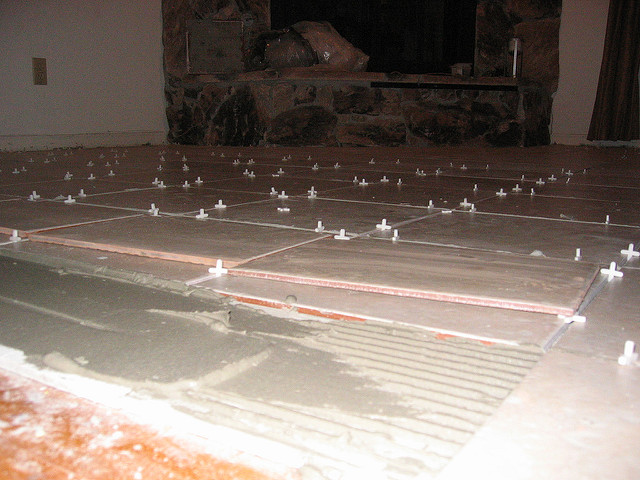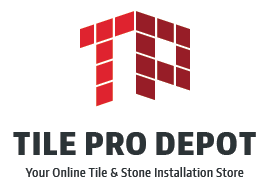
When installing tile, it’s important you select the appropriate thinset (or mortar) for the job. Using the correct thinset will not only add strength to your installation, but also add on years of life.
Unfortunately, picking the right setting material isn’t always an easy job. Generally, there are three different types of mortar you can choose from, and those include thinset, mastic, and epoxy. Which you choose is determined by your needs and the type of tile you’re installing.
Thinset
Thinset is the most commonly used tile setting material. It provides a strong bond and is moisture resistant – though not impermeable. It typically comes in powder form and is mixed with water or an acrylic additive (depending on if the powder already has the additive mixed in).
Thinset can be used in areas that are exposed to water (bathrooms, kitchens, etc.) as well as areas that are exposed to heat. This setting material can also support a good deal of weight, so it’s great for flooring and heavier tiles. Thinset has a long working time, so it’s ideal for those who are new to the tiling industry, and allows for time to correct errors and adjust as you work. For this reason, you should only use rapid set thinset mortar if you’re a seasoned pro, as you can begin grouting in just 2 to 4 hours.
Mastic
Mastic isn’t used as often as thinset, as it is a latex or solvent based adhesive that is cured by evaporation. It comes premixed in a bucket and is incredibly sticky, so when you install a tile it stays in place immediately. Mastic can only be used in non-wet applications, so it should never be used in showers or floors that encounter moisture. When it’s exposed to water, cured mastic will reactivate and turn into goo, so it’s best suited for areas like backsplashes, fireplaces, or half-baths that do not include a bathing area.
Mastic should also only be used to install tile that is smaller than six inches. If the tile exceeds this size, you run the risk of the mastic never fully setting, as it’s not exposed to enough air.
Epoxy
Epoxy is a resin based compound that usually comes in three separate parts: resin, hardener, and powder. The reaction between the parts forms a stiff product that when cured becomes permanent. Epoxy adheres to a wide variety of materials, and it’s incredibly chemical, heat, and water resistant.
Epoxy is most commonly used in outdoor installations, like pools or outdoor showers, that require extreme water and wear resistance. Epoxy is very strong, which results in a higher price tag. Epoxy is best left to experienced professionals, as it is permanent and unforgiving.
At the end of the day, you should use whichever setting material works best for you and with your experience, as well as the type of tile you’re installing. The more experience you have, the easier it will be for you to select the perfect setting material.
At Tile Pro Depot, we carry a number of setting materials to suit every job, like Laticrete Thinset and Laticrete Mortar, as well as epoxy adhesives.
Visit our website to place an order and to view our wide selection tile installation products. If you have any questions, feel free to contact us online or by phone at (844) 751-2625.

Welcome to Tile Pro Depot! We established this site to service the specific needs of the tile installation professional. Tile installation tools, tile setting materials, premixed grout and more tile installation products online at Tile Pro Depot.